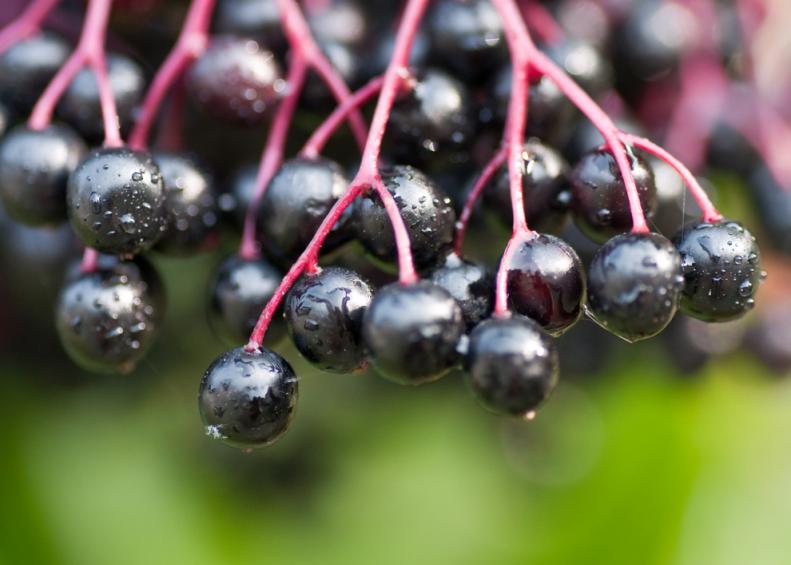1 / 13
Photo: Shutterstock
Elderberry Through the Ages
Elderberries are the fruit of the shrub Sambucus nigra, native to Europe, southwestern Asia and northern Africa, and S. canadensis, American elder, native to central and eastern North America. Archeological evidence suggests that elderberries (and the trees and flowers that produce them) have been in use since ancient times for medicinal, culinary and household uses, and indigenous populations in North and South America used various parts of the elderberry plant for medicinal purposes to treat a variety of ailments. Read on to learn more about this ancient berry and its usage then and now.









